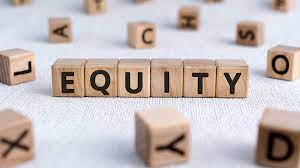
Striving for Equity: Building a Fair and Inclusive Society
The Importance of Equity in Society
Equity is a fundamental principle that plays a crucial role in creating a fair and just society. It goes beyond the concept of equality by recognizing that individuals have different needs, circumstances, and backgrounds that may require different treatment to achieve true fairness.
At its core, equity seeks to address systemic inequalities and barriers that prevent certain groups from fully participating in society. This can include disparities in access to education, healthcare, employment opportunities, and more. By promoting equity, we strive to level the playing field and ensure that everyone has the chance to reach their full potential.
One key aspect of equity is acknowledging and valuing diversity. Embracing diversity means recognizing the unique strengths and contributions that individuals from different backgrounds bring to the table. By fostering an inclusive environment where everyone feels respected and valued, we can create a more vibrant and dynamic society.
Equity also requires taking proactive measures to address historical injustices and discrimination. This may involve implementing policies and programs that aim to reduce disparities in income, housing, healthcare outcomes, and other areas. By actively working to dismantle systemic barriers, we can move closer towards achieving a more equitable society for all.
Ultimately, equity is not just a lofty ideal—it is a necessary foundation for building a thriving community where every individual has the opportunity to succeed. By championing equity in all aspects of our lives, we can create a more just and inclusive world for future generations.
Top 5 Frequently Asked Questions About Equity and How to Promote It
- What is equity?
- How does equity differ from equality?
- Why is equity important in society?
- What are some examples of inequity in the world today?
- How can individuals promote equity in their communities?
What is equity?
Equity refers to the principle of fairness and justice in providing equal opportunities and access to resources for all individuals, regardless of their background or circumstances. It goes beyond treating everyone the same and instead focuses on addressing systemic inequalities and barriers that may prevent certain groups from fully participating in society. Equity recognizes that people have different needs and experiences, and seeks to ensure that everyone has the support they need to thrive and reach their full potential. By promoting equity, we strive to create a more inclusive and just society where every individual has the opportunity to succeed.
How does equity differ from equality?
Equity differs from equality in that while equality focuses on treating everyone the same regardless of their individual needs or circumstances, equity recognizes and addresses the fact that people have different starting points and may require different levels of support to achieve fairness. Equity aims to level the playing field by providing resources and opportunities based on individual circumstances, with the goal of ensuring that everyone has access to the same opportunities for success. In essence, equity seeks to address systemic disparities and promote a more just and inclusive society by acknowledging and addressing the unique challenges faced by different individuals and groups.
Why is equity important in society?
Equity is essential in society because it ensures fairness and justice for all individuals, regardless of their background or circumstances. By prioritizing equity, we strive to address systemic inequalities and create a more inclusive environment where everyone has equal access to opportunities and resources. Without equity, marginalized groups may continue to face barriers that prevent them from fully participating in society and reaching their full potential. Embracing equity not only promotes social cohesion and unity but also fosters a more vibrant and prosperous community where every voice is heard and valued.
What are some examples of inequity in the world today?
In the world today, examples of inequity can be seen in various forms across different sectors. One prevalent example is the persistent gender pay gap, where women are often paid less than men for the same work. Additionally, racial inequities continue to exist in areas such as access to quality healthcare, education, and employment opportunities. Economic disparities also contribute to inequity, with marginalized communities facing barriers to financial stability and upward mobility. Environmental injustice is another critical issue, with certain communities bearing a disproportionate burden of pollution and environmental hazards. These examples highlight the ongoing challenges of inequity that persist in our society and underscore the importance of addressing systemic inequalities to create a more just and equitable world for all.
How can individuals promote equity in their communities?
Individuals can promote equity in their communities by actively engaging in initiatives that address systemic inequalities and advocate for fairness and justice. This can involve supporting policies and programs that aim to reduce disparities in access to resources such as education, healthcare, and employment opportunities. Additionally, individuals can strive to foster inclusivity and diversity within their communities by listening to marginalized voices, challenging biases and stereotypes, and promoting a culture of respect and understanding. By taking concrete actions to promote equity on a personal and collective level, individuals can contribute to building more equitable and inclusive communities for all.









-
Tagged baklava, ceremonies, civilizations, culinary uses, culture